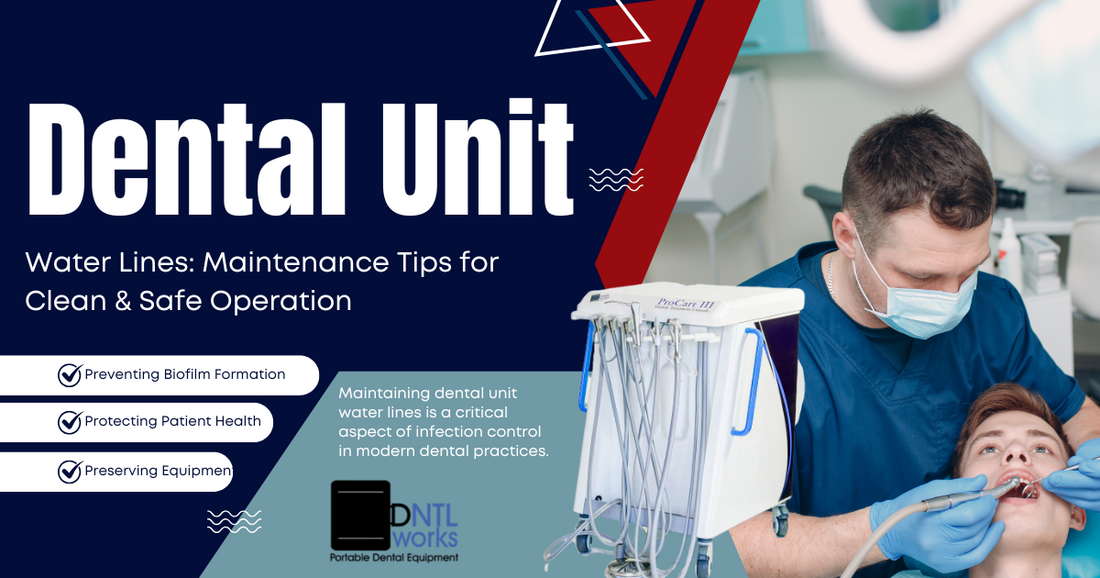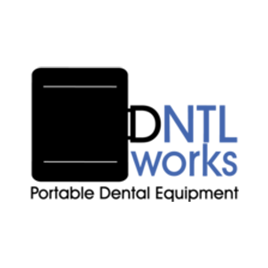
Dental Unit Water Lines: Maintenance Tips for Clean & Safe Operation
Share
Maintaining dental unit water lines is a critical aspect of infection control in modern dental practices. Water lines deliver water to dental handpieces, air-water syringes, and ultrasonic scalers, but if not properly maintained, they can harbor harmful microorganisms that pose health risks to both patients and practitioners. This guide will cover the importance of dental unit water line maintenance, best practices for care, and solutions to ensure compliance with safety standards.
What Are Dental Unit Water Lines?
Dental unit water lines (DUWLs) are narrow, flexible tubes that connect dental units to water sources. They deliver water used for cooling instruments, rinsing during procedures, and operating ultrasonic scalers. However, their small diameter and constant exposure to water make them prone to biofilm formation—a sticky layer of bacteria and other microbes that can contaminate the water supply.
Why Is Maintenance of Dental Unit Water Lines Important?
Proper maintenance of DUWLs is crucial for several reasons:
- Preventing Biofilm Formation: Biofilm in water lines can harbor harmful bacteria, including Legionella and Pseudomonas, which can pose health risks.
- Protecting Patient Health: Contaminated water lines can lead to infections, especially in immunocompromised patients.
- Ensuring Regulatory Compliance: Following guidelines from organizations like the CDC and ADA ensures your practice meets infection control standards.
- Preserving Equipment: Proper maintenance reduces the risk of clogging and extends the lifespan of dental equipment.
Signs of Contaminated Dental Unit Water Lines
Some signs that your DUWLs may require attention include:
- Unpleasant odors or discoloration in water output.
- Clogging or reduced water flow from handpieces or syringes.
- Visible deposits or buildup in tubing.
Maintenance Tasks for Dental Unit Water Lines
Best Practices for Maintaining Dental Unit Water Lines
Follow these steps to ensure your DUWLs remain clean and safe:
- Use Treated Water: Always use distilled or treated water to minimize microbial contamination.
- Flush Lines Daily: At the start and end of each day, flush all water lines for 20–30 seconds to reduce biofilm buildup.
- Use Disinfectants: Regularly apply an EPA-approved dental water line disinfectant to eliminate bacteria and biofilm.
- Monitor Water Quality: Perform routine water quality testing to ensure microbial counts meet safety standards (≤500 CFU/mL).
- Replace Tubing: Periodically replace water lines to prevent degradation and contamination.
Solutions for Dental Unit Water Line Maintenance
There are several products and tools available to assist in DUWL maintenance:
- Water Line Cleaners: Specialized cleaners break down biofilm and prevent its reformation.
- Filters: Inline filters help remove contaminants and improve water quality.
- Testing Kits: Water testing kits allow for on-site microbial analysis to ensure safety.
- Automatic Systems: Advanced systems automate flushing and disinfection processes for consistent results.
Regulatory Guidelines for Dental Unit Water Lines
Ensure your practice complies with the following guidelines:
- CDC Recommendations: Use water meeting EPA standards for drinking water (<500 CFU/mL).
- ADA Guidelines: Regularly clean and disinfect water lines to prevent microbial contamination.
- Manufacturer Instructions: Follow manufacturer-specific protocols for equipment care and maintenance.
Common Myths About Dental Unit Water Line Maintenance
There are several misconceptions about DUWL care:
- "Daily flushing is enough to prevent biofilm." While flushing reduces buildup, it doesn’t eliminate biofilm; disinfection is also required.
- "Distilled water doesn’t need treatment." Even treated water can become contaminated within lines if biofilm is present.
- "Biofilm can’t be removed once it forms." Advanced cleaners can effectively eliminate biofilm and restore water line safety.
Conclusion
Dental unit water lines are a vital component of any dental practice, and their proper maintenance ensures patient safety, regulatory compliance, and equipment longevity. By implementing routine cleaning, disinfection, and testing, you can prevent contamination and protect your practice. Explore our selection of water line maintenance products and solutions to keep your practice running smoothly.
